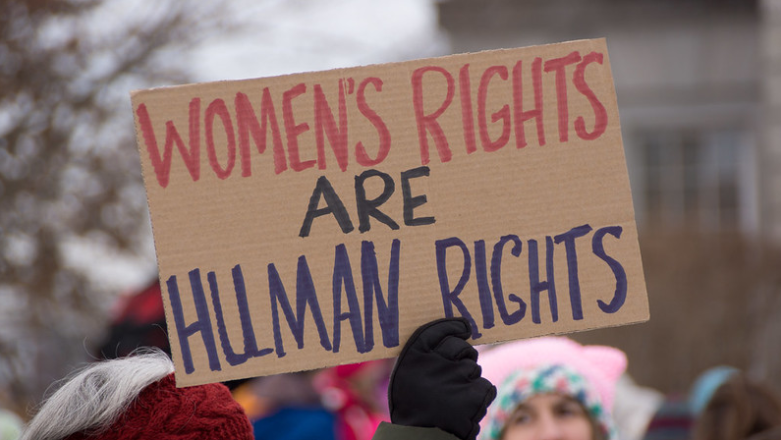Staff Editorial: Women, girls should be treated with more respect
Photo by Marc Nozell used under CC BY 2.0.
In spite of society’s progress toward gender equality, women continue to face discrimination and fight for their rights.
April 16, 2021
From a young age, girls are pressured to “cover up” and hide their body shape. They are warned against going outside alone or standing too close to strangers. This doesn’t change as they grow up.
School dress codes penalize girls who show certain areas of their skin, wear sleeveless tops or wear shorts that don’t come down to their fingertips. All the while, they are told that it is their responsibility to dress in modest attire to not attract the wrong type of attention.
In spite of society’s current progress towards gender equality, many women continue to face sexism on a daily basis. In the workplace, women are twice as likely to be mistaken as someone in a junior position compared to their male coworkers, implying that they are less experienced or competent in the field. Women of color especially have to deal with a greater variety of microaggressions, whether it be in the form of racial stereotypes or sexist comments, which, regardless of their intentions, can contribute to a more uncomfortable environment for women and girls.
Microaggressions are verbal or behavioral actions that communicate hostility towards targeted groups, including women. For example, the expectation that women should act more submissive and compliant can be a belittling microaggression.
Some people are quick to dismiss targeted microaggressions as only mildly offensive to those who are sensitive. However, experiencing these prejudiced comments can harm one’s self-image and shouldn’t be taken lightly.
Similarly, gender prejudice affects women’s access to proper health care. Many women require birth control to help with period regulation, migraines or other medical uses; however, several states continue to withhold contraception from women and girls due to sexist laws. According to American Progress, employers with religious objections can deny birth control coverage to their employees. Discriminatory barriers to female reproductive rights mainly stem from a lack of knowledge and exaggerated misperceptions of women’s health, such as the false belief that contraceptives may lead to early abortion or increase risky sexual behavior.
In addition, studies have found that girls who do not conform to traditional gender expectations are more likely the targets of sexual harassment, especially those in the LGBTQ+ community. Many of these girls have experienced sexist comments or jokes about their gender identity; both of which are unacceptable no matter the scenario.
Rather than making idle judgements based on gender, people should empathize with and respect women’s decisions as independent people. It’s basic human decency to respect all women, no matter how they identify or choose to express themselves.


